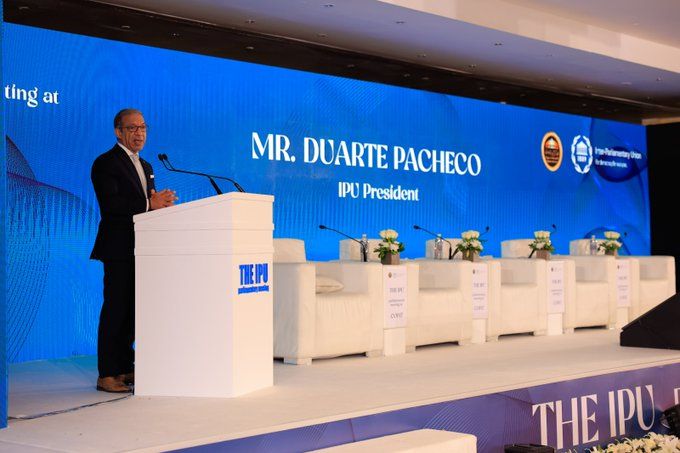Egypt’s COP27 presidency published a non-paper of what would become the cover decision text at the United Nations Climate Conference in Sharm El Sheikh by Friday or Saturday.
Following overnight work, the draft was published to reflect the parties’ needs and demands.
The pressure from developed nations to eliminate the divide between developed and developing parties in their commitments to provide climate money and reduce emissions caused the negotiations to become more acrimonious.
The distinction is captured by the non-paper. It emphasises the “equity” and “shared but differentiated duties” aspects of the Paris Agreement, which state that countries shall act in accordance with their own situations and respective capabilities.
Also Read| Rainn Wilson changes name to Rainnfall Heat Wave Extreme Winter Wilson: Know why
On Thursday, the non-paper will be debated and negotiated before a final result is made public. It emphasises how crucial it is to make every effort, at every level, to meet the Paris Agreement temperature objective.
The agreement aimed to pursue efforts to keep the temperature increase to 1.5 degrees above pre-industrial levels and to keep the increase in the global average temperature well below 2 degrees above pre-industrial levels.
According to the draft, developed countries have failed to reduce emissions in accordance with their fair share and historical responsibility.
“Expresses deep regret that developed countries, which have the most financial and technological capabilities to lead in reducing emissions, continue to fall short, and are setting inadequate and unambitious goals to achieve net zero emissions by 2050, while continuing to emit and consume disproportionately the global carbon budget,” the draft reads.
Also Read| COP27: Developing countries need $1 trillion a year for climate action
According to the plan, industrialised nations should achieve net-zero carbon emissions by 2030. According to the supply of support by rich countries to developing countries, developing countries might increase their ambitions in terms of mitigation.
India has objected to the phasing down of any fossil fuel being singled out. The non-paper strikes a delicate balance by urging the reduction of coal and inefficient fossil fuel subsidies while at the same time assuring that efforts will be based on local conditions and a just transition.
Also Read| What is COP27? Significance and all you need to know
Gas, oil, or India’s transition away from fossil fuels are not mentioned.
The draft highlights industrialised parties’ lack of ambition in securing appropriate climate finance as well as developing nations’ failure to fulfil their promises regarding mitigation efforts.
The draft states that in comparison to the overall needs of developing countries, global climate finance flows remain modest. The expected amount of global climate finance for 2019–2020 is USD 803 billion. This sum represents 31-32% of the annual expenditure required to keep the rise in the world temperature to well below 2 °C or 1.5 °C.
Also Read| COP27 2022: Last 8 years warmest in recorded history, UN report reveals
According to the draft, this level of climate finance is also less than one might anticipate given the recognised investment opportunities and the risk of not meeting climate stabilisation targets. According to the proposal, developed countries should increase their support by contributing resources financially, transferring technology, and building capacity.
It expresses worry about the fact that the developed nation parties’ 2020 target of mobilising $100 billion annually together has not yet been reached. The plan exhorts them to reach the objective and overcome the $100 billion shortfall that has existed since 2020.







